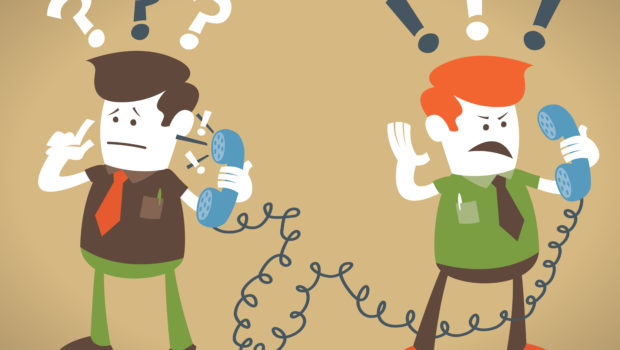6 Ways Freelancers Can Handle Difficult Clients
Of the many obstacles that freelancers encounter, having difficult clients is, unfortunately, one of the most common ones. This can occur many different ways. There may be a client that does not communicate with the freelancer, a client who has difficult demands and an untimely frame in which they want them to be met, or someone who does not want to pay you after everything is said and done. This becomes tedious and exhausting to deal with, and it is easy to lose your cool over this situation. Regardless of the set of circumstances that makes your client difficult, freelancers must learn to take it in stride and handle these situations with grace. Here are six ways freelancers can deal with difficult clients:
1. Communicate clearly
If you are a writer, words are likely to come easy to you. This may or may not be the case for your client. Even if you are not a writer, words will be your friend in the digital world of freelancing. Be sure to be clear and transparent along every step of the way for the job you are being hired for. Ask yourself and get the answer to every single question, including but not limited to: What is the topic? How many words do you need to write/how big does the infographic need to be/how much web content are you creating? Is there a specific format in which they want the piece written? A tone or voice you should focus on? Should there be heavy, cited research or is this more of an opinion piece? A design to follow? A color scheme they want? How long is the video you are making? How many photographs are you taking? What is the due date and time? What timezone is the date and time? Do you want edits done? What kind of edits? What do and don’t you like? The list of questions can go on endlessly. Keep in touch with your client; let them know how you are doing or if you have any other questions that you think would be better to ask sooner rather than later. If you are working on a web site or on content for them, find out the specifics before assuming anything-the last thing you want is for your client to want a brand-new format for a post and getting upset with you for following the previous format. The more transparent and clear you are, the easier it is iron out issues before they manifest and become a larger problem.
2. Protect yourself
This pertains mostly to payment. If you are in a situation where the client does not want to pay you, putting in place protections beforehand can help should the situation arise. Make a contract and have both parties sign it, so that you have something enforceable. While this may not be possible if the client is in another country, if you are in the same country it is a wise move to make. A standard agreement that you draw up to have your clients sign shows a professional firm stand towards the relationship and the work you are about to do from the beginning.
Many freelancers work through websites such as FreelanceMyWay, where they have portals through which you submit your work. Make sure to submit your work through that portal as opposed to a private email. This way FreelanceMyWay can protect you if the client decides not to compensate you for the work you have done.
If there is a way for the funds for the job to be held in escrow until it has been submitted, arrange to have that happen. Know how to file a dispute or a claim if the client does not want to pay. The key is to knowing what steps you can take if a payment issue arises instead of scrambling to find out after a client is giving you a hard time.
3. Document everything
Every communication you have with your client, be sure to keep a log of in case a disagreement arises. If possible, log in the time that you are working for your client through an application on your laptop. Keep a record of everything that you do for this project, and make sure it is organized and easily accessible. Think of it and use it as evidence for your case in a world where a dispute with your client is a court of law. Having something you can reference can make a misunderstanding or a forgotten promise easy to remember again and read. This dissolves tension quickly and seamlessly.
4. Stay calm, yet firm
Getting angry and frustrated is easy in any situation where tensions begin to rise and money is involved. It is important that you, as the freelancer, are calm in every communication that you have with a client or any other party involved. Stay calm, firm, and professional. Even if you are angry on the inside, you cannot let that show through to your client. It will only create more problems and give your client more justification for the way they are acting towards you. Plus, you never know. If you handle a situation in a rude manner, it could travel through the pipelines and jeopardize a future job that you may apply for. You need to learn how to deal with difficult clients early in your freelancing career.
5. Observe and adapt
Observe not only your client’s habits, but your own. Recognize how you work best and how you handle problems and adapt to that knowledge. Observe how your client communicates and what kind of patterns they have. Do you disappear until right before the project is due? Are they delayed in getting back to you because of a time difference? Do they always want edits that leave the final product completely different from the first? If you observe these habits as you work, it makes you better prepared for when the inevitable happens. This will lead to much less stress in the long run and a better professional relationship with your client.
6. Know when to walk away
No matter how hard you try and how many high roads you take, sometimes there is nothing you can do. There are some people out there that are not meant to have working relationships and you cannot learn to work amicably with. Others are scammers and no matter what you do, you may never see the money for the work you have done. If any of these instances end up being the situation you are in, know when it is time to walk away. At some point, your time, energy, and mental health are not worth the grief of continuously going after someone and getting into constant disagreements. While it is a last resort and it always good to try and resolve the issue beforehand, it is good to know when enough is enough.
The life of a freelancer has many perks. Being your own boss, doing what you love when you want. There are also a few cons, which comes with the territory of any job. Having difficult clients is one of the most common issues for freelancers and learning how to deal with them will make everything easier in the long run, for you both personally and professionally.

















